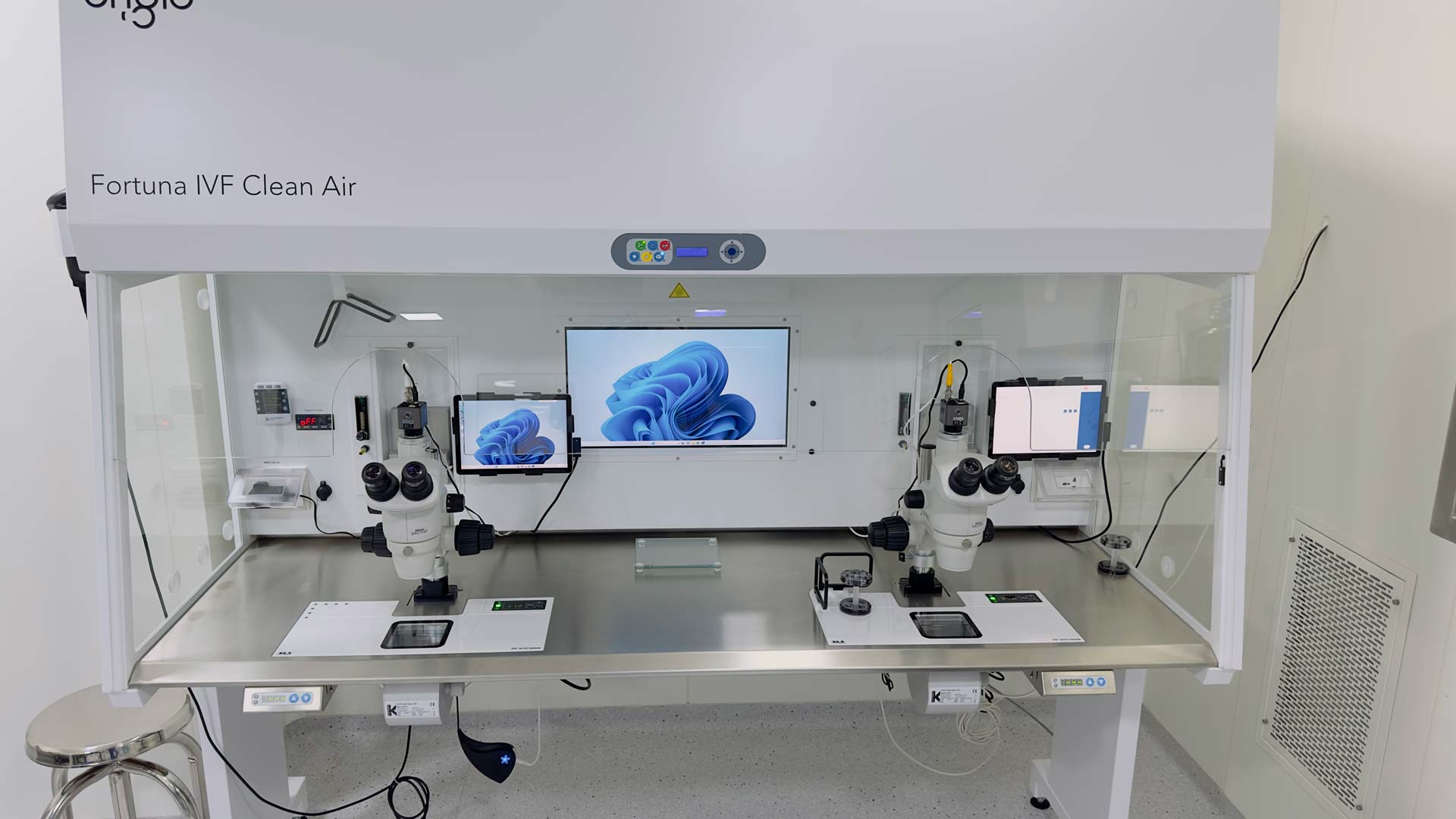Physiological Intracytoplasmic Sperm Injection (PICSI)
At Ferty9, we embrace the cutting-edge PICSI procedure as a revolutionary advancement in the field of assisted reproductive technology. PICSI reflects our commitment to employing the latest techniques to enhance fertility outcomes. This highly specialized procedure elevates the selection of the best sperm for fertilization to an entirely new level.
PICSI involves the meticulous identification and selection of mature, healthy sperm with intact DNA using a hyaluronan-coated dish. Our experts possess an intricate understanding of the physiological qualities that define high-quality sperm, and with the aid of advanced equipment, they skillfully choose the optimal candidates for the fertilization process.
What sets Ferty9 apart is our dedicated focus on patient outcomes. By offering PICSI, we ensure that the sperm chosen for fertilization are of the utmost quality, increasing the chances of successful embryo development and implantation. Our approach resonates with precision, science, and compassion, making the journey towards parenthood more promising and hopeful for couples facing fertility challenges.
Experience fertility care that is not just advanced but deeply personalized. Choose Ferty9 and embrace the potential of PICSI as part of your fertility journey, where science and empathy intersect to create life-changing possibilities.
FAQ's
What is PICSI
PICSI, or Physiological Intracytoplasmic Sperm Injection, is a specialised technique used with ICSI to select the most optimal sperm for injection into the egg. It involves using a special dish coated with hyaluronic acid, a medium naturally present in the female reproductive tract, to mimic the natural selection process that occurs during fertilisation.
When is PICSI recommended
PICSI is recommended in cases where there are concerns about the quality or functionality of the sperm. It helps select the sperm with better DNA integrity and a higher chance of successful fertilisation. PICSI is particularly beneficial for couples with repeated IVF failure or unexplained infertility. Your fertility specialist will determine if PICSI suits you based on the outcomes of diagnostic tests and a comprehensive evaluation of your situation.
How does PICSI differ from traditional ICSI
While both PICSI and traditional ICSI involve the injection of a single sperm into an egg, the primary difference lies in the selection process of the sperm. In traditional ICSI, the sperm is chosen based on its appearance under a microscope. In PICSI, the sperm is selected based on its ability to bind to hyaluronic acid, which mimics the natural selection process that happens in the female reproductive tract.
What are the potential benefits of PICSI
PICSI offers several potential benefits over traditional ICSI. By selecting sperm that have a higher chance of successful fertilisation, PICSI can improve the overall success rates of IVF treatments. It also reduces the risk of using sperm with poor DNA integrity, which may lead to increased rates of genetic abnormalities or failed pregnancies. Additionally, PICSI can provide valuable information about the quality and functionality of the sperm, allowing for a more personalised approach to infertility treatment.
are there any additional costs associated with PICSI
The cost of PICSI may vary based on the fertility centre and the specific treatment package you choose. It is essential to discuss the price and any additional fees associated with PICSI with your fertility specialist beforehand. While PICSI may incur extra expenses, weighing the potential advantages against the cost is vital to making an informed decision about your treatment modalities.
Is PICSI suitable for all infertility cases
PICSI is not suitable for all infertility cases. Fertility experts primarily recommend it for couples with male infertility problems, such as poor sperm quality or previous failed fertilisation attempts. However, it may also be considered in certain cases of unexplained infertility or repeated IVF failure. Your fertility specialist will evaluate your specific situation and determine if PICSI is an appropriate treatment option for you.



